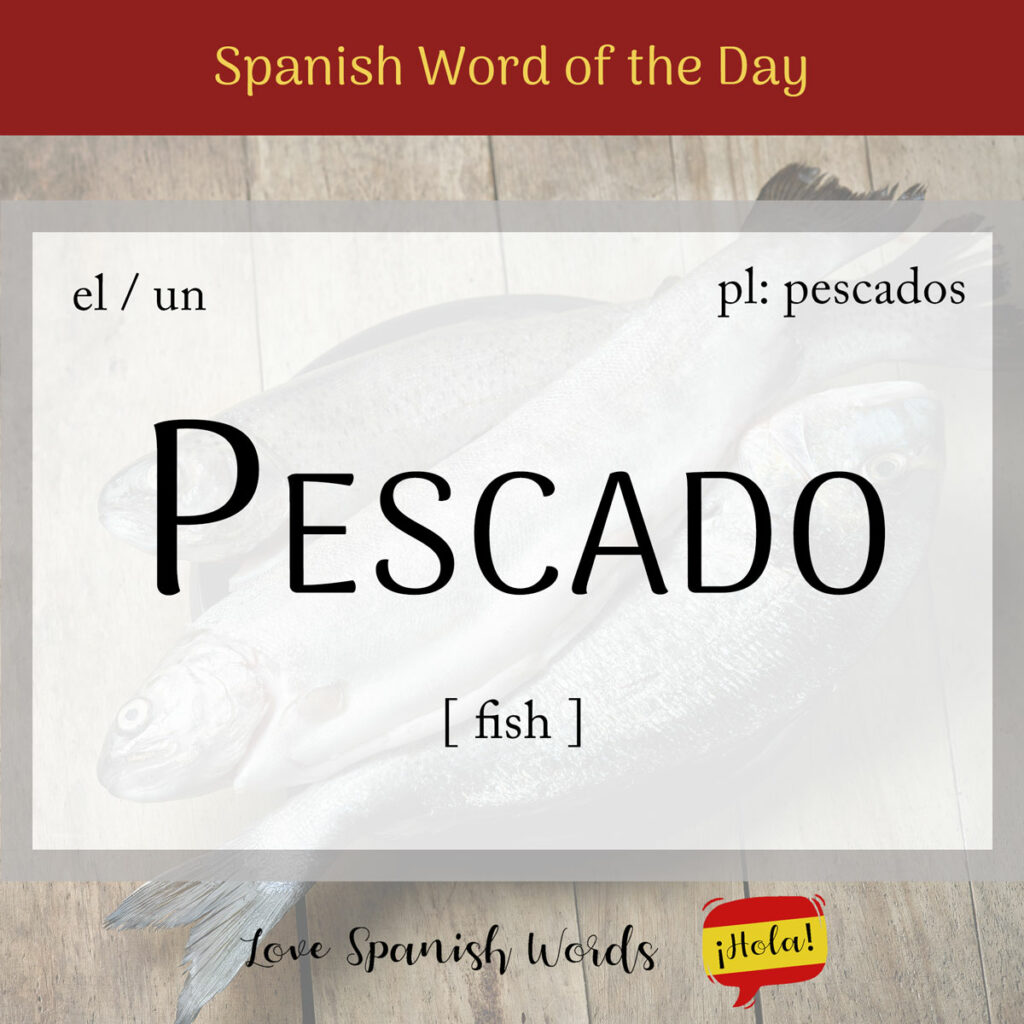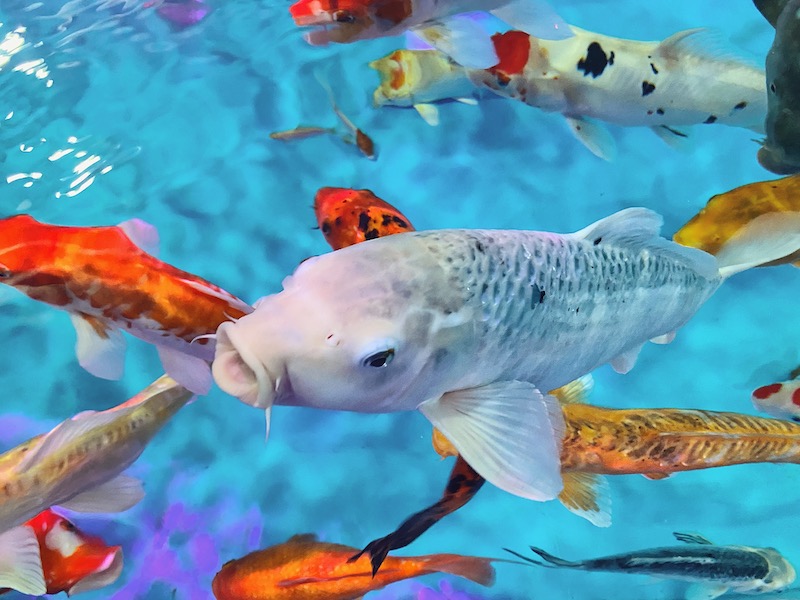Today, let’s look at another staple of Mediterranean cuisine: fish, known in Spanish as pescado.
The word pescado comes from the Old Galician-Portuguese word pescado (fish), which originates from the Latin word piscātus, meaning fished. Pescado is the past participle of the verb pescar (to fish) and literally means “fished”—fish that has been caught.
Latin American Pronunciation
European Pronunciation

Pescado is a masculine noun that takes the following definite and indefinite articles:
- el pescado – the fish
- los pescados – the fish
- un pescado – a fish
- unos pescados – some fish
Me encanta comer pescado y patatas fritas los viernes
I love to have fish and chips on Fridays.

Important: The Spanish word for a fish that is alive and swimming is un pez and the plural is unos peces.
What we are talking about here in this article is the fish (pescado) that has been caught ready for the table.
Nutritionally speaking, most fish can be put into two main groups – pescado azul (blue fish) and pescado blanco (white fish) – but what’s the difference?
Pescado azul
What is known as pescado azul is generally what we would describe as oily fish. Frequently it is said that eating this type of fish is very beneficial for our health, being rich in Omega 3 and essential fatty acids (ácidos grasos esenciales) which can protect our heart (nuestro corazón), while benefitting the health of our skin (piel) and hair (cabello).
The most common types of pescado azul we will come across are:
- sardina = sardine
- salmón = salmon
- boquerón o anchoa = anchovy
- atún y bonito = tuna and white tuna
- emperador = emperor fish
- cazón = dogfish
- trucha = trout
Pescado blanco
White fish or pescado blanco generally contains less fat and is an excellent source of lean proteins (proteínas magras) and other essential nutrients (nutrientes esenciales). For this reason, pescado blanco is recommended for certain diets. White fish also contains healthy fats such as Omega 3 but in reduced quantities.
Commonly seen pescado blanco on a menu include:
- merluza = hake
- lenguado = sole
- bacalao = cod
- dorado = dolphin fish
There are many ways that we can buy, prepare and cook fish. We may choose frito (fried), asado (grilled), enlatado (tinned), or even crudo (raw) in some tapas or ceviche.
After the pescador (fisherman) has been out to pescar (to catch fish), they will be taken to the pescadería (fish shop) where the pescadero (fishmonger) will sell it to you.

Interesting fact:
The Spanish word for a wart that you might get on the bottom of your foot, caused by the HPV virus, is verruca. However, in Spanish-speaking countries, it can be referred to as ojo de pescado!
Idioms and phrases featuring ‘pescado’:
Ahumársele a alguien el pescado
Literal translation: to smoke someone’s fish
English meaning: to make someone angry
Estar todo el pescado vendido
Literal translation: all the fish is to be sold
English meaning: it’s a done deal
Los huéspedes y el pescado a los tres días apestan
Literal translation: house guests and fish stink after three days
English meaning: people can outstay their welcome

